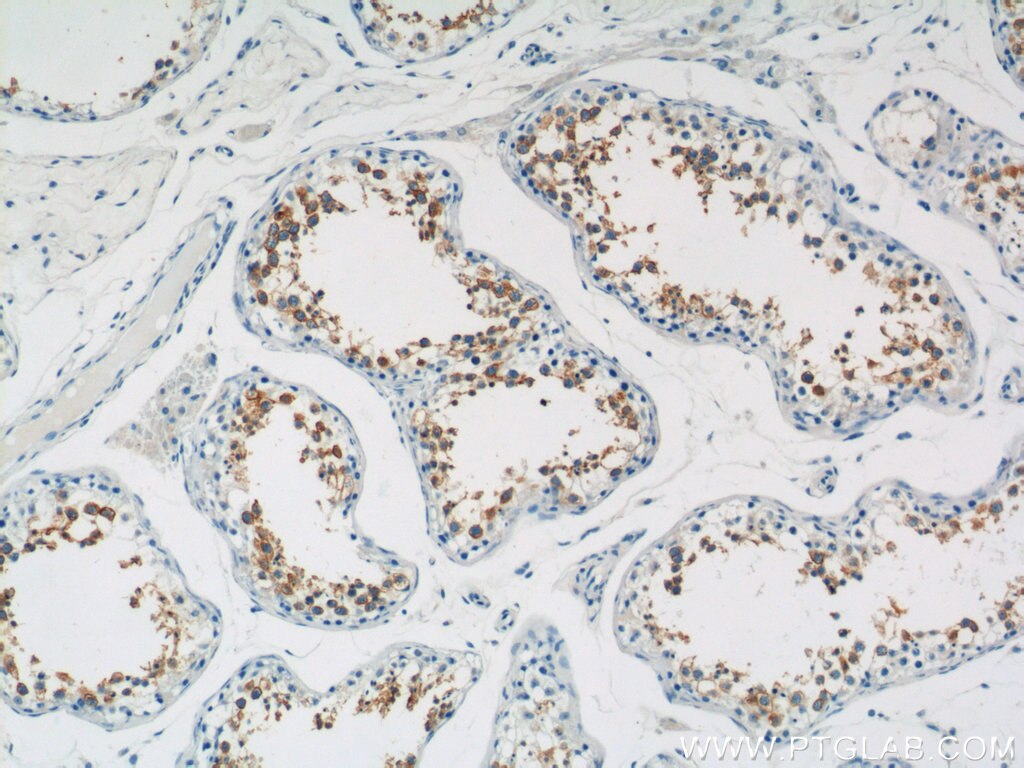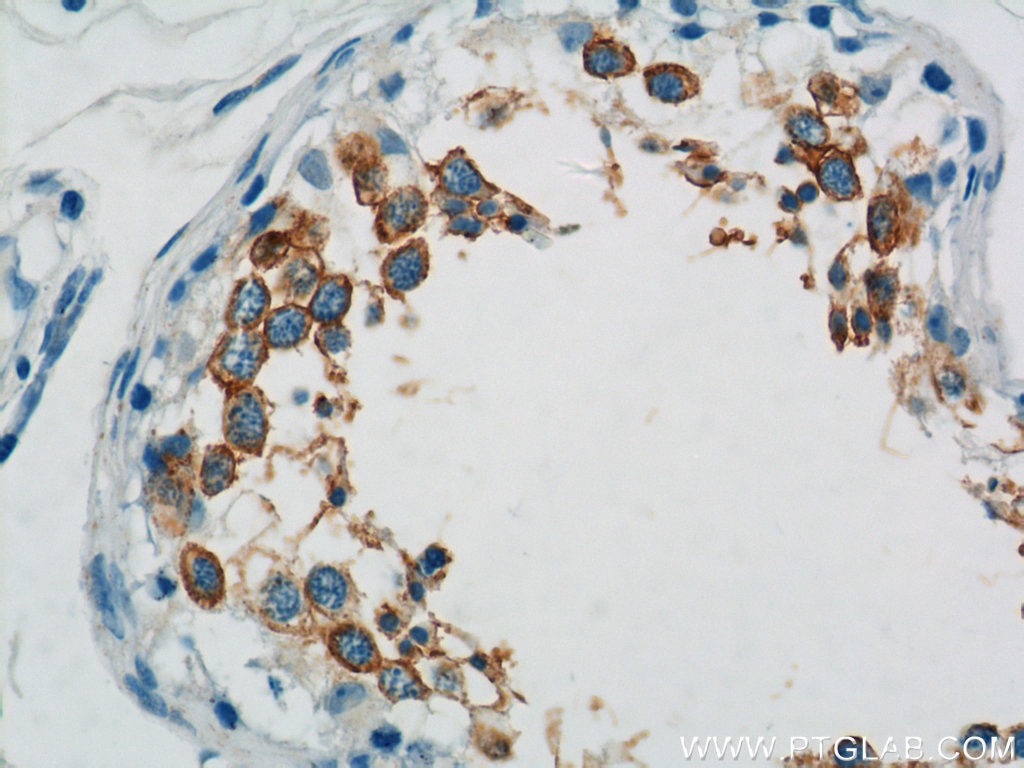Tested Applications
| Positive IHC detected in | human testis tissue Note: suggested antigen retrieval with TE buffer pH 9.0; (*) Alternatively, antigen retrieval may be performed with citrate buffer pH 6.0 |
Recommended dilution
| Application | Dilution |
|---|---|
| Immunohistochemistry (IHC) | IHC : 1:20-1:200 |
| It is recommended that this reagent should be titrated in each testing system to obtain optimal results. | |
| Sample-dependent, Check data in validation data gallery. | |
Published Applications
| IF | See 1 publications below |
| CoIP | See 1 publications below |
Product Information
15447-1-AP targets TEX101 in IHC, IF, CoIP, ELISA applications and shows reactivity with human samples.
| Tested Reactivity | human |
| Cited Reactivity | bovine |
| Host / Isotype | Rabbit / IgG |
| Class | Polyclonal |
| Type | Antibody |
| Immunogen |
CatNo: Ag7611 Product name: Recombinant human TEX101 protein Source: e coli.-derived, PGEX-4T Tag: GST Domain: 1-267 aa of BC001861 Sequence: MGAMQIQTSSSQTSPEEAMGTPRIQHLLILLVLGASLLTSGLELYCQKGLSMTVEADPANMFNWTTEEVETCDKGALCQETILIIKAGTETAILATKGCIPEGEEAITIVQHSSPPGLIVTSYSNYCEDSFCNDKDSLSQFWEFSETTASTVSTTLHCPTCVALGTCFSAPSLPCPNGTTRCYQGKLEITGGGIESSVEVKGCTAMIGCRLMSGILAVGPMFVREACPHQLLTQPRKTENGATCLPIPVWGLQLLLPLLLPSFIHFS Predict reactive species |
| Full Name | testis expressed 101 |
| Calculated Molecular Weight | 26.6 kDa |
| GenBank Accession Number | BC001861 |
| Gene Symbol | TEX101 |
| Gene ID (NCBI) | 83639 |
| RRID | AB_2878139 |
| Conjugate | Unconjugated |
| Form | Liquid |
| Purification Method | Antigen affinity purification |
| UNIPROT ID | Q9BY14 |
| Storage Buffer | PBS with 0.02% sodium azide and 50% glycerol, pH 7.3. |
| Storage Conditions | Store at -20°C. Stable for one year after shipment. Aliquoting is unnecessary for -20oC storage. 20ul sizes contain 0.1% BSA. |
Background Information
TEX101, also named as SGRG and NYD-SP8, plays a role in signal transduction and promote protein tyrosine phosphorylation. It can be used as a marker for early detection of Basal cell carcinoma (BCC).
Protocols
| Product Specific Protocols | |
|---|---|
| IHC protocol for TEX101 antibody 15447-1-AP | Download protocol |
| Standard Protocols | |
|---|---|
| Click here to view our Standard Protocols |
Publications
| Species | Application | Title |
|---|---|---|
Cell Res The AHCY-adenosine complex rewires mRNA methylation to enhance fatty acid biosynthesis and tumorigenesis | ||
Int J Biol Macromol TMT-based quantitative N-glycoproteomic analysis reveals glycoprotein protection can improve the quality of frozen bovine sperm. |






